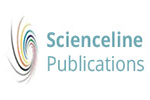(2021) Dexmedetomidine for sedation and correction of psychoemotional disorders in critically ill patients with COVID-19. Journal of Life Science and Biomedicine. pp. 80-87. ISSN 2251-9939
|
Text
JLSB 11(5) 80-87, 2021-Dexmedetomidine for psychoemotional disorders in COVID-19 patients.pdf - Published Version Download (594kB) |
Abstract
Aim. The objective of this study was to evaluate sedation therapy effectiveness in critically ill patients with severe COVID-19 who received dexmedetomidine compared to propofol. Methods. The research was done in a prospective single center to a cohort study of critically ill 333 adult patients with COVID-19 and psychoemotional disorders (depression, anxiety and posttraumatic stress disorder) admitted in the ICU of the Republican Specialized Hospital for COVID-19 in Uzbekistan. Patients were non-invasive ventilated more than 24 hours and received intravenous sedation with dexmedetomidine or propofol. Results. The risk of progression of the pathological process decreased from 47.6% to 21.8% and, accordingly, the proportion of patients with stabilization and improvement of their condition increased from 52.4% to 79.4% (p<0.001). The possibilities of non-invasive respiratory support were expanded with a reduction in the frequency of tracheal intubations from 17.3% to 7.3% (p<0.001), the duration of ICU stay was from 12.6±0.8 to 9.4±0.6 days, and the duration of respiratory therapy was from 8.4±0.5 to 5.2±0.4 days. In particular, there was an improvement in oxygen saturation (SpO2) recovery after one day of intensive therapy from 86.6±0.2% to 92.2±0.3% with non-invasive ventilation and a higher oxygenation index (2.3 in the dexmedetomidine group versus 1.6 in the propofol group, p=0.032) during the period of sedation withdrawal. Conclusion. In the presence of severe psychoemotional disorders, the effectiveness of etiotropic and pathogenetic treatment protocols of COVID-19 directly depends on the proper sedation regimen. In this aspect, dexmedetomidine provides adequate and safe respiratory support with an improvement in external respiration, blood gas composition and a minimal negative hemodynamic effect.
| Item Type: | Article |
|---|---|
| Keywords: | COVID-19, Intensive care unit, Depression, Anxiety, Posttraumatic stress Disorder, Sedation, Dexmedetomidine, Comparison study |
| Subjects: | Q Science > Q Science (General) R Medicine > R Medicine (General) |
| Divisions: | Journal of Life Sciences and Biomedicine (JLSB) |
| Page Range: | pp. 80-87 |
| Journal or Publication Title: | Journal of Life Science and Biomedicine |
| Journal Index: | Not Index |
| Volume: | 11 |
| Number: | 05 |
| Publisher: | Scienceline Publications, Ltd |
| Identification Number: | https://doi.org/10.51145/jlsb.2021.10 |
| ISSN: | 2251-9939 |
| Depositing User: | Dr. Zohreh Yousefi |
| URI: | http://eprints.science-line.com/id/eprint/570 |
Actions (login required)
 |
View Item |


 Dimensions
Dimensions Dimensions
Dimensions